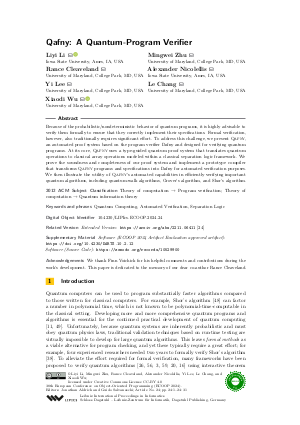LIPIcs.ECOOP.2024.24.pdf
- Filesize: 0.79 MB
- 31 pages

 Creative Commons Attribution 4.0 International license
Creative Commons Attribution 4.0 International license






















Feedback for Dagstuhl Publishing